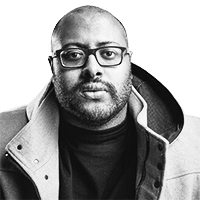At a recent Q&A for Ridley Scott’s All the Money in the World, an audience member posed the following question to Scott: “Will we ever see Kevin Spacey’s performance?”
Kevin Spacey, of course, was cut from the film and replaced with Christopher Plummer weeks before its release because of the recent string of sexual-assault allegations against him. The question was asked presumably because, in the wake of men like Spacey, Harvey Weinstein, Louis C.K., and others having their sordid histories exposed, some feel as though we stand to “lose” the work of exceptional artists.
What’s far more important to examine is how these bad men have deprived us of so many other artists: the young women or men they bullied, terrorized and kept out of the industry. The people whose names we’ll never know, because they met men like these upon their arrival in Hollywood. The careers dashed, like the recent admission from The Lord of the Rings filmmaker Peter Jackson, who said that Weinstein warned him off casting Mira Sorvino and Ashley Judd in his blockbuster fantasy trilogy. His claim was echoed by director Terry Zwigoff, who tweeted, “I was interested in casting Mira Sorvino in BAD SANTA, but every time I mentioned her over the phone to the Weinsteins, I’d hear a CLICK. What type of person just hangs up on you like that?! I guess we all know what type of person now. I’m really sorry Mira.” (Bad Santa was distributed by Weinstein-owned Dimension Films.)
“Just seeing this after I awoke, I burst out crying. There it is, confirmation that Harvey Weinstein derailed my career, something I suspected but was unsure. Thank you Peter Jackson for being honest. I’m just heartsick,” wrote Sorvino upon hearing the news.
Judd and Sorvino have both come forward this year about being sexually harassed by Weinstein. Judd’s harassment was detailed earlier this year in a New York Times piece: “Mr. Weinstein soon issued invitation after invitation, she said. Could he give her a massage? When she refused, he suggested a shoulder rub. She rejected that too, she recalled. He steered her toward a closet, asking her to help pick out his clothing for the day, and then toward the bathroom. Would she watch him take a shower? she remembered him saying.”
In Ronan Farrow’s New Yorker exposé of Weinstein's years-long tactics of intimidation, Sorvino said of Weinstein, “He started massaging my shoulders, which made me very uncomfortable, and then tried to get more physical, sort of chasing me around.” She also spoke to The Hollywood Reporter about how she believed Weinstein blacklisted actresses who refused to play ball with him sexually or give into his demands, like Salma Hayek recently alleged in a New York Times op-ed.
We now know the truth in this statement. As Jackson told Stuff last week, “I recall Miramax telling us [Judd and Sorvino] were a nightmare to work with and we should avoid them at all costs. This was probably in 1998.”
Weinstein was an executive-producer on Jackson’s Lord of the Rings films, and Miramax was his company. He allegedly besmirched both actresses’ reputations in order to get revenge on them for rejecting his unwelcome advances. Sorvino and Judd were rising stars of the ‘90s, with the former winning an Oscar and the latter toplining the 1999 hit Double Jeopardy—it’s not absurd to think that their careers could’ve ascended to greater heights if men like Weinstein weren’t thwarting them at every turn.
But now that we know all this, what is there to be done?
For all the alleged industry support of the brave women who have come forward against Weinstein—Judd, Sorvino, Hayek, Paz de la Huerta, Rosanna Arquette, Dominique Huett, Anabella Sciorra, Lupita Nyong’o, Rose McGowan, and Asia Argento, among others—all we’ve seen are tweets of support and speeches about how the industry has to do better. One thing that could immediately be done is to start working with the actresses whose careers were destroyed by Weinstein. If there isn’t a Judd thriller on someone’s radar to green-light in 2018 or a Sorvino comedy or a role for Nyong’o that’s not five CGI seconds in The Last Jedi, then the industry isn’t truly putting its money where its mouth is.
“I am saying this now: I will write, develop, or produce something specifically for Ashley Judd and Mira Sorvino,” screenwriter Eric Heisserer, who received an Oscar nomination for penning Arrival, tweeted this week. “Let me get a look at that when you get them pages bruh!!!” chimed in Barry Jenkins, the Oscar-winning filmmaker behind Moonlight.
There’s an interesting nugget in the recent BuzzFeed piece exploring Armie Hammer’s stardom and how Hollywood manufactures careers for attractive white men, regardless of box office success. Hammer is probably not the best example, given that he’s currently receiving plaudits for Call Me by Your Name and not clogging up the box office with an expensive flop. But it’s interesting how Hammer rebounded so quickly after his turn in Nate Parker’s The Birth of a Nation. It’s as if the potential awards accolades he would’ve received had to be regifted to him the following awards season. It makes me think of Gabrielle Union, an actress who was vocal about her own rape long before this year made a movement of confession. Union was forced to reopen old wounds because of her attachment to The Birth of a Nation and the rape allegation against Parker, only to be promptly forgotten along with the movie. Here is a woman who for years has anchored a successful television drama (Being Mary Jane) as well as turned in an Oscar-worthy performance in The Birth of a Nation, and the industry hasn’t yet rushed to get Union in another awards contender.
It’s time to stop decrying the so-called art that we’re losing and start making up for the art that women (and some men) have never been allowed to create.





